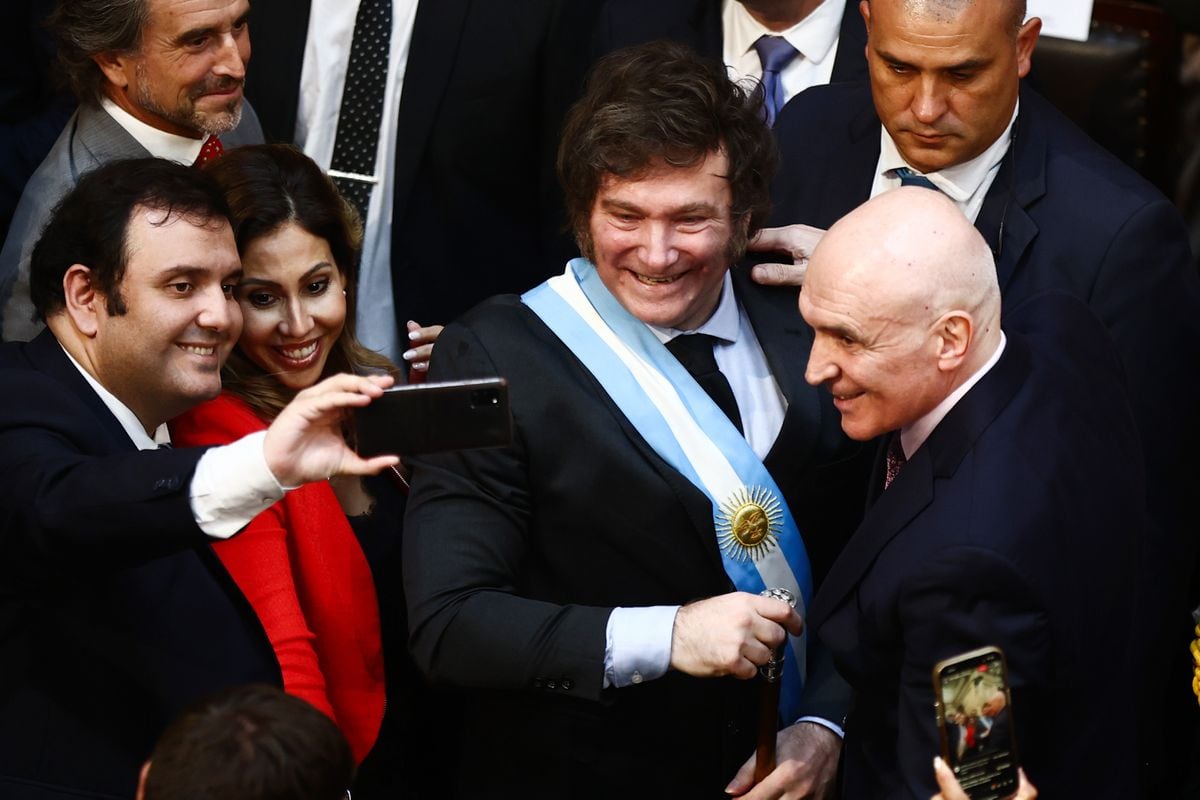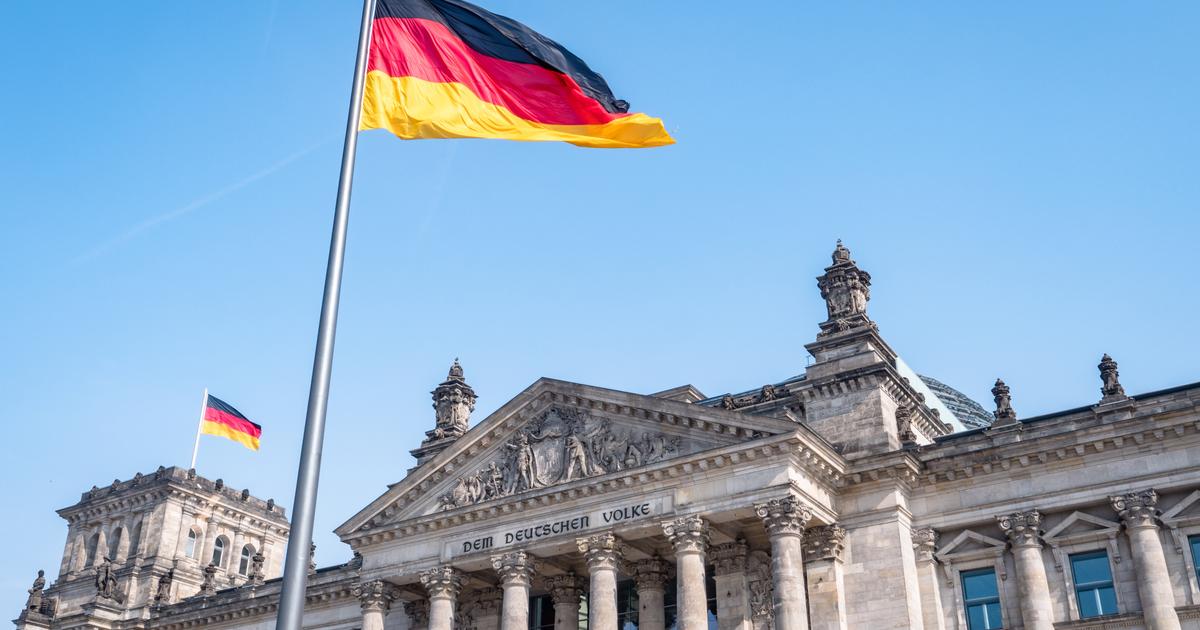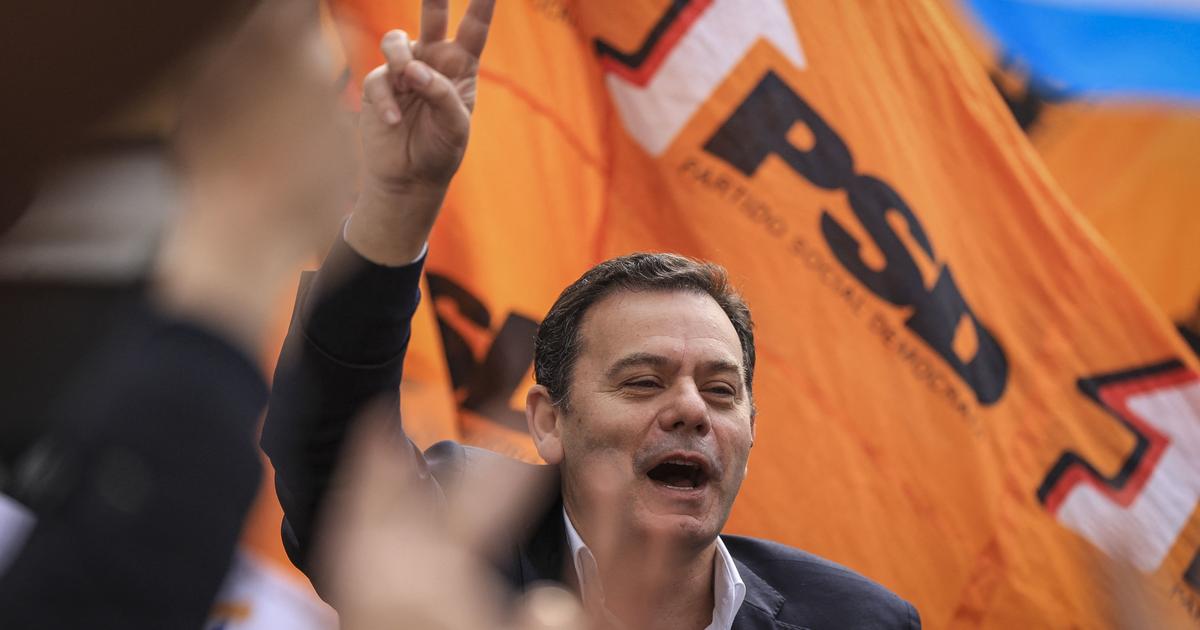A protest in Plaza de Mayo, in Buenos Aires, this Monday.JUAN MABROMATA (AFP)
December 2001 was an earthquake for Argentina. The social outbreak in the streets of Buenos Aires and in the main cities of the country that triggered the early resignation of President Fernando de la Rúa caused the entire political system to shake, shouting "Let everyone go." It almost fell apart. Argentina had five presidents in less than two weeks and in the midst of that institutional crisis and with the largest bankruptcy in its history, it announced the suspension of payment of the foreign debt. Twenty years after that dramatic month, the country has managed to rebuild its political system, but is once again mired in a financial crisis that forces it to negotiate with the International Monetary Fund (IMF) due to the impossibility of repaying the loan of 44,000 million euros. dollars received in 2018.
Beginning in 1998, Argentina began to sink into a deepening recession.
Three years later, the De la Rúa government had to face the dilemma posed by the convertibility system in force since 1999 that tied the value of the Argentine peso to the dollar: the demand for US currencies far exceeded the country's ability to generate dollars.
Without economic growth, with rising unemployment and uncompetitive exports due to the high value of the peso, the country was increasingly dependent on foreign financing and, in mid-2001, turned to the IMF.
The international organization complied with the first agreed disbursements but suspended them due to the increasing flight of capital and the bank run accelerated.
More information
Four voices of the crisis in the Argentine corralito, 20 years after 2001
Against this background, on December 3, De la Rúa signed the decree of the "corralito", which limited bank withdrawals to 250 pesos - still equivalent to 250 dollars - per week. From that moment, the distrust and anger of the Argentines soared and there was no going back. On December 13, the workers' centrals carried out a major strike against the Government and looting and incidents began to be registered in different parts of the country. On December 19, the declaration of the state of siege with which the president sought to regain control was the last straw: the population took to the streets en masse to protest and did not yield even to the fierce repression it caused. the death of 39 people. On the afternoon of December 20, De la Rúa resigned and left the government headquarters by helicopter.
“The 2001 crisis was born from a problem of economic roots due to scarcity of resources, which when trying to solve it were further restricted. But that was the trigger for something much deeper, which was the lack of legitimacy of the political system, "says political scientist Facundo Cruz, coordinator of the book
After the earthquake. The Argentine political system 20 years after the 2001 crisis
. For Cruz, that mistrust in the entire political class had been in evidence two months earlier, in the legislative elections of October 2001. Of every four votes cast, one of them was null or blank.
After 20 years, Cruz maintains that the political system managed to rebuild the link with society. “The electoral participation of 2001 began to grow and the white and null vote to decrease. Today we are at much lower values. Politics was revalued, as was the presidential authority ”, he highlights. The skepticism on the part of the population with the current parties —and the incipient irruption of
outsiders such
as the ultra-liberal economist Javier Milei— is far from the general exhaustion exhibited in 2001.
An example of this reconstruction is the entry into the political arena of social movements that 20 years ago blocked roads and streets to protest against the numerous closures of factories and companies. “Nothing was the same after 2001, we all learned from that experience. Before we left politics for others, for those who studied and prepared, but we saw that nothing is achieved without politics and we began to politicize the organizations ”, says Juan Carlos Alderete, historical leader of the Classical and Combative Current, one of the most active groups in the street protests of two decades ago, and today deputy for the ruling Frente de Todos.
"We are part of the Frente de Todos, but we continue to demand and criticize what does not convince us," says Alderete. Daniel Menéndez, a reference for the social organization Barrios de Pie, who was part of the team of the Ministry of Social Development in the last two years, agrees with him: “Bringing the social conflict that we express to the Government is a way of channeling the response. Obviously it is not a simple equation and there is tension, but those of us who are part of social movements are here to build solutions. The world is in a very complex scenario and we are in a process of searching for more inclusive societies, with greater rights ”.
The political recovery has not kept pace with the economic one. After almost a decade of growth after the 2001 debacle - with the exception of 2009 - the Argentine economy stagnated and as of 2018 began to fall: 2% that year, 2.1% in 2019 and 9.9% in a 2020 marked by the covid-19 pandemic. The growth estimated for 2021 is not enough to return to the starting point, especially since inflation, above 50%, devours wages, which do not grow at the same rate. “Every time there is an economic crisis of this magnitude, it ends up leaving social strata that remain below the poverty line and then have no capacity or resources to go back above it. The Argentine political system does not find tools to remove the layers of generations that are left in poverty.With each crisis the distance between the richest and the poorest also widens ”, warns Cruz. According to the latest official data, four out of every ten Argentines are poor.
In these two decades, a social protection network has been formed through state subsidies and free canteens that reduces the risk of a new social outbreak. “In those years, the State was totally absent in many towns and neighborhoods of the big cities. Today he has space, although the blanket is still short, ”says Alderete. Even so, on several occasions the ability of Argentines to mobilize to resist cuts or unwanted policies has been evidenced. At the end of 2017, a large mobilization led to a pitched battle in front of Congress to stop the pension reform promoted by the Macri government. Without going so far back, in recent days, numerous demonstrations in the Patagonian province of Chubut against mega-mining forced the Executive to back down.
Fernández has promised that he will not make any adjustments, but his actions are tied to the conditions agreed to with the IMF to restructure the debt assumed under Macri's mandate. The Peronist Executive is forced to reach an agreement because in 2022 Argentina must return 19,000 million dollars to the body, a sum that it cannot cope with. Argentines have burned down the crisis of 2001 and the specter of the cessation of payments. Currently, all dollar deposits have assets in the same currency that back them, but the apocryphal report of a consultancy that warned of a possible corralito was enough to trigger the withdrawal of more than 600 million dollars from the system at the beginning of month. Although the differences compared to 20 years ago are numerous,Argentines have taken too many blows to trust.
Subscribe here to the EL PAÍS América newsletter and receive all the informational keys of the current situation in the region

/cloudfront-eu-central-1.images.arcpublishing.com/prisa/UCBZGVKJRCLFJLRDL7HM7KJ47U.jpg)



/cloudfront-eu-central-1.images.arcpublishing.com/prisa/PLLMQZDHVVEMHBHGHSS4ZY4A2E.jpg)









/cloudfront-eu-central-1.images.arcpublishing.com/prisa/GP2ZXWJRROQQUNBAGJPH3WIOVQ.jpg)